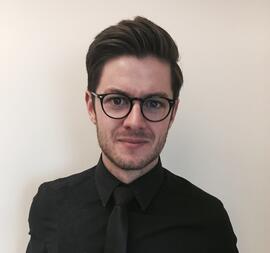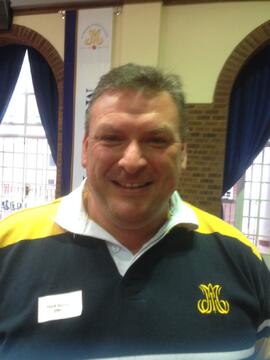Interview with Mark Reeves – 1983
Mark began his school career at St David’s in 1973, starting in standard 1, after moving from
Sandown Primary which was located where Sandton City now stands. At the age of 5, he
remembers being the swimming team mascot for College house at the inter-house gala,
dressed as a sword bearing sheik. The aftercare is now situated where this swimming pool once
was located.
He has fond memories of Miss Joseph, Miss Jamieson (Ansell), Mrs Anderson, Mrs Scaafsma
and Mrs Napier, all of whom taught him in junior school. Mrs Kempster was headmistress and
had a crooked index finger, causing confusion as to who she was actually pointing at, while you
were being scolded.
The brothers were still very active in teaching and coaching sport at this time. Mark remembers
being taught at some stage of his senior years by Brother’s Timothy, Bernard, Richard,
Christopher and Anthony. Senior school was where you gained your foundation and became
part of the Marist family.
Memorable advice came from Br Anthony when he said “Do not feel guilty for your privileged
lives, because if it wasn’t for compassionate and generous privileged people the poor would
have nothing”.
Strong teachers like Brother Anthony, Mr Collier, Mr Boswell, Mrs Elliot and Mr McFadden,
made a huge impact on those senior school years. Mark remembers Mr Collier, a remarkable
teacher and coach, who was very religious and well respected by all the boys, especially for his
caring attitude to all. He took them on retreat to Kuruman where Br Anthony and Br Christopher
hosted the boys during school holidays.
During the last two years of Mark’s schooling career at St David’s he had 3 Headmasters, Mr
Murphy, Br Anthony and Mr Frielick. Mr Murphy was a tower of a man and his wrestling career
was the best kept secret amongst the boys. Mark recalls lifting Mr Murphy above his head at
rugby trials in standard 9 and was rewarded with a place in the 1st rugby team for his effort. Tim
Marnewick was chairman of the school board of governors and a strong supporter of the Marist
community.
Classmates who he remembers well are Peter Wharton-Hood, an intellectual genius, who often
assisted the teachers after proving them wrong and who also was a talented sportsman.
Duncan Senior, who mirrored these attributes. Andrew Forsmann, a great all rounder, and the
long line of Forsmann’s who attended St David’s and who owned Kyalami Ranch, a memorable
recreational facility for them all.
He remembers Karl Ortel, who during his matric year at St. David’s fought 20 fights in 21 days
to win the Golden Gloves World Boxing Tournament. Corado Annicello who achieved Springbok
colours in judo. Kamsisi Nyirenda, the Malawian ambassador’s son, who in the black & white
class photo, due to his dark complexion, blended into the background with only his white teeth,
the white of his eye’s and collar visible. Solly Maponya,who had a BMW in standard 6 and who
was a great driver, especially to parties. Other good friends who are now very successful
businessmen include Sven Retzlaff and Roy Perlman, property developers, Mark Atier a cellular
industry entrepreneur, Mark Rosewitz a top legal adviser and Jason Askew, who has become a
famous Anglo-Boer war artist. “There are so many success stories of individual classmates from
his year and he is very proud to have been associated with them all”..
Mark was honoured to have been elected as head prefect in 1983. He was captain of the school
swimming and water polo teams, and was captain of College House. He was awarded colours
for rugby, swimming and water polo, and received a merit scroll for leadership. He played 1st
team rugby and was a member of the athletics team, for field events, but banned from hurdles
for breaking multiple crossbars! He also received an academic scroll and a distinction for History
in matric
After leaving St David’s Mark studied a BA in Education and together with his brother, Alan, also
head prefect of St. David’s in 1977, started a well known photographic business. They have had
the good fortune of working together for over 33 years and are now involved in multiple building
hardware and paint retail outlets.
Mark served St. David’s on the board of governors, was chairman of the development
committee and an active member of the PTA. He still serves as a member of the old boys
committee. Mark is married to Carol-Anne and has a son Stephen and daughter Kirsty.
JLE May 2016


